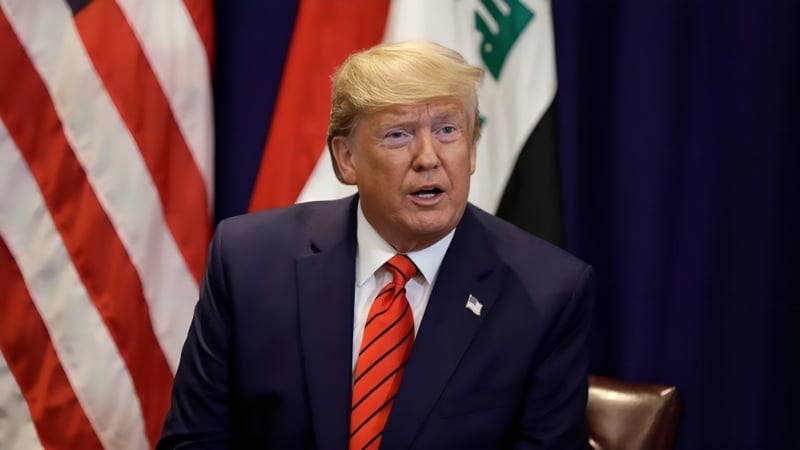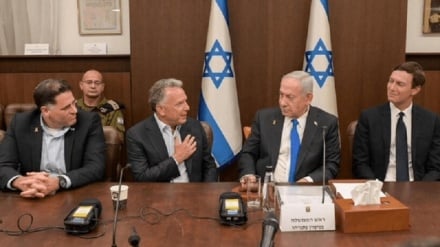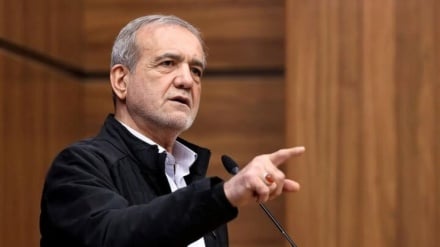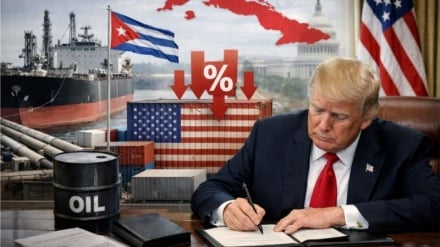What U.S. wants from Iraq?
-

U.S. President Donald Trump
Pars Today — The United States, which occupied Iraq following its 2003 invasion, continues to pursue various objectives in the country.
According to Pars Today, the United States has paid particular attention to Iraq and its developments during Donald Trump’s second presidential term. America’s objectives in Iraq are a combination of security, economic, political, and geopolitical interests. Washington seeks to maintain its influence in Iraq as a relative ally by using diplomatic, military, and intelligence tools, while simultaneously preventing the presence of regional and international actors whose goals and interests do not align with those of the U.S.
It appears that the Trump administration pursued the following objectives in this oil-rich country:
- One of the United States’ most important goals in Iraq is to maintain its geopolitical influence in the heart of West Asia. With its strategic location bordering Iran, Syria, Saudi Arabia, and Turkey, Iraq plays a key role in regional dynamics. Washington seeks, through its military and diplomatic presence in Iraq, to preserve the balance of power in favor of itself and its allies and to prevent the expansion of influence by regional and international rivals such as Russia and China. Some analysts believe that the U.S. is also seeking to influence the current elections in Iraq in favor of factions aligned with its interests.
- Iraq is one of the world’s largest oil producers, and the United States, in line with broader Western interests, seeks to ensure the security of energy resources and their transit routes through the Persian Gulf and Iraqi territory. Washington’s presence in Iraq allows it to influence the global oil market and to guard against alleged threats to energy infrastructure.
- Despite negotiations for the withdrawal of U.S. forces, Washington continues to seek a long-term military presence in Iraq. Controlling Iraqi airspace and maintaining military bases in key areas are part of this strategy. This presence allows the U.S. to respond quickly in times of crisis and safeguard its interests.
- One of the United States’ hidden but important objectives is to prevent the development of relations between Iran and Iraq. These two Muslim-majority countries, however, share a long-standing relationship rooted in a civilization spanning several millennia. Cultural and religious commonalities, as well as mutual interests in expanding ties across various fields, run counter to the U.S. approach of undermining the positive relations between Iran and Iraq.
- Washington has consistently sought to weaken Iraq’s Popular Mobilization Forces (PMF or Hashd al-Shaabi). The PMF, composed of various groups, is considered part of the Iraqi army and has played a decisive role in fighting the terrorist group ISIS in the country. In 2016, the Iraqi parliament passed a law recognizing the PMF as part of Iraq’s armed forces. This law granted the PMF legal legitimacy and placed them under the command of the Iraqi Armed Forces, headed by the Prime Minister. Nevertheless, Washington has made every effort to dissolve the organization and has even repeatedly attacked PMF units.
- During both his first and second terms, Donald Trump sought to bring Iraq into the Abraham Accords to expand the normalization of relations with Israel, but he faced strong domestic resistance in the country. The main goal of the Abraham Accords, signed in 2020 between Israel and several Arab countries such as the UAE, Bahrain, Morocco, and Sudan, was to normalize diplomatic, economic, and security relations between Israel and Arab states. Trump attempted to bring Iraq into this process as well.
He used diplomatic pressure and economic incentives to encourage the Baghdad government to move closer to the Abraham Accords. However, strong opposition from the Iraqi public, religious authorities, and numerous political groups prevented this goal from being realized. Due to its religious composition and historical sensitivity toward Israel—considering that the Israeli regime is fundamentally an illegitimate entity established to serve Western interests, has occupied Palestine for nearly 80 years, and committed numerous crimes—Iraq has not joined the agreement. Nevertheless, the United States continues to use its tools of pressure to create conditions for informal rapprochement between Baghdad and Tel Aviv.


